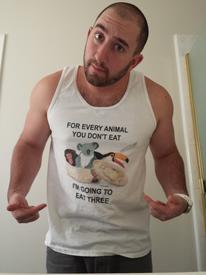Should I measure or weigh my food?

hgycta
Posts: 3,013 Member
I have been here for over 400 days, yet I am still incredibly confused about this. I need help.
So I noticed a pack of cheese I bought serves two cups, yet only weighs eight ounce (equivalent of one cup). I measured out the suggested portion of 1/4 cup for 80 calories, and it was half an ounce, yet next to the 1/4 cup serving suggestion it said 28g...which would be one ounce.
I always thought it was best to weigh food... but I guess I should be measuring it? That's what my mom said...
If someone could clarify this for me that would be extremely helpful!
So I noticed a pack of cheese I bought serves two cups, yet only weighs eight ounce (equivalent of one cup). I measured out the suggested portion of 1/4 cup for 80 calories, and it was half an ounce, yet next to the 1/4 cup serving suggestion it said 28g...which would be one ounce.
I always thought it was best to weigh food... but I guess I should be measuring it? That's what my mom said...
If someone could clarify this for me that would be extremely helpful!
0
Replies
-
Weigh weigh weigh. Way more accurate.0
-
Weigh if you can. The more accurate you can be the better baseline you can create for your caloric intake. Thus you will know how much you are eating and how you change because of it.0
-
Always weigh when given the option, unless it's a liquid like milk, oil, syrup, etc.0
-
But I would be consuming more by weighing it? My mother said that since it wasn't a liquid I should measure it...? Apparently it doesn't convert the same... I'm so confused xD0
-
Unless it's a package that's really specific (ex: "1 Chicken Breast = Whatever), then I try to weigh my food. For instance, I usually eat turkey sausage for breakfast and the serving size is 2oz and I would have no clue how much that is if it wasn't for my food scale. But now that I've done it consistently, I pretty much know it by eye so I don't have to do it as much. So I would say yeah, you should for the serving sizes that go by oz or cups until you can get a pretty good eye for it.0
-
:flowerforyou: you should measure always!0
-
I do both. If it says on the label its in grams it gets weighed. If its liquid it gets measured. I have a scale and all the measuring tool. I have come to find that some of the database is in one or the other. So do both if you have to. Keeping track it a bit time consuming but so worth it! Make sure you have scrap paper in kitchen!0
-
Measure liquids, weigh solids. Solids have different densities from different producers so if you just measure there is no way on earth of knowing how much you are really getting.0
-
I went and grabbed my very similar bag of cheese because your numbers were confusing me. My bag is 2 cups or 8 oz or 226 grams. My cheese weighs 28 grams per 1/4 cup and that would be approximately 8 servings per 2 cups or 224 grams. Everything balances out other than the surplus 2 grams in the bag that don't fit with the exact 8 28 gram servings...
I weigh mine and usually do 1/8 cup and it's 14 grams... the measurement and weight match by weight. Measuring is not as accurate at all. It varies depending on how tightly packed you have your measuring cup. That 1/4 cup could weigh just about anything depending if you sprinkle the cheese in or press it in tight.0 -
If the package lists a weight per serving I weigh it... liquid or not... if it does not list a weight then and only then do I measure it.0
-
get a food scale and weigh everything that you can...0
-
I measure unless I'm in a rush. It really helps to know exactly how much you're eating.0
-
Always weigh. Measuring is not accurate. Shredded cheese is pretty much the ONLY thing I can think of that underestimates a serving size. For everything else, you're eating more than you think if you don't weigh it.0
-
I was wondering about this too....guess i need to invest in a food scale.0
-
I use a tanita scale. Got it for about 10 bucks off amazon. Does grams, ounces, lbs, kgs. Has a tare feature which is great (so you can zero out small plates and cups before putting your food on it).
To test the accuracy of a scale, weigh a US nickel. I think it's a standard 5 grams0 -
You are confusing liquid or volume ounces (like a cup measure) with weight ounces. They only work the same for water.
Anything that packs loosely - like shredded cheese - is more accurately measured with a scale - as everyone says. It doesn't matter so much for things like rice. There are many things like that that I don't weigh. Oranges or apples, figs, lettuce, tortillas, etc. I just log as 'whole units'. Liquids and things that pour (rice) I always measure by volume. I've got a lot of experience and seem to eyeball wall (I spot check myself reasonably often.)
Anything easy to weigh I weigh. One of the great things about a scale that measures in grams is that lots of things in MFP are standardized for European measures and give you calories per 100 grams. Then you just weigh and punch in the decimals. Easy peasy.
In terms of 'eating more' if you go by weight, not volume . . . Eat what you want. All that changes with measurement is accuracy of logging.0
This discussion has been closed.
Categories
- All Categories
- 1.4M Health, Wellness and Goals
- 394.9K Introduce Yourself
- 44K Getting Started
- 260.6K Health and Weight Loss
- 176.2K Food and Nutrition
- 47.5K Recipes
- 232.7K Fitness and Exercise
- 444 Sleep, Mindfulness and Overall Wellness
- 6.5K Goal: Maintaining Weight
- 8.6K Goal: Gaining Weight and Body Building
- 153.2K Motivation and Support
- 8.2K Challenges
- 1.3K Debate Club
- 96.4K Chit-Chat
- 2.5K Fun and Games
- 4.2K MyFitnessPal Information
- 16 News and Announcements
- 1.3K Feature Suggestions and Ideas
- 2.8K MyFitnessPal Tech Support Questions













